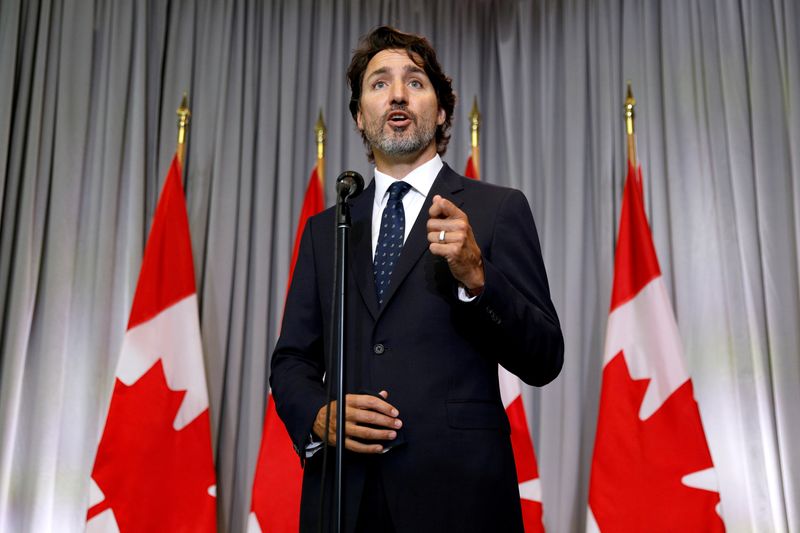By Allison Martell
TORONTO (Reuters) - Canada's recent spike in COVID-19 cases has created day-long lines at testing centers and prolonged waits for results, highlighting gaps in a system that leans heavily on traditional laboratory tests in a nation that has been slow to adopt newer, faster diagostic technologies.
While other countries have approved new ways to test for COVID-19 in recent months, like rapid point-of-care tests, much of Canada stuck with the basics: deep nasal swabs collected by healthcare workers and sent off to labs.
New rapid point-of-care tests or home collection kits used in the United States could help clear the backlog, but are not yet available in Canada.
The U.S. Food and Drug Administration authorized its first home collection kit on April 21. Health Canada discouraged applications for similar kits until late August, citing concerns about misuse, before changing course.
The long lines and waits for results could accelerate the spread of the virus by discouraging testing and making contact tracing more difficult.
"I'm really concerned that people who have to leave the house to perform essential services are in a bind," said Jennifer Hulme, an emergency physician in Toronto.
Canada's new cases have surged past 1,000 per day, after dropping below 300 in late June, numbers that still pale compared with surging outbreaks in the United States.
"There's got to be more testing stations. There have to be more people employed, emergency measures taken. This is ridiculous," said high school teacher Mary Capin, 47, outside Toronto's Women's College Hospital on Friday.
Health Canada in a statement said it is reviewing new kinds of tests "as quickly as possible without compromising patient safety" and working closely with manufacturers in Canada and abroad.
"We have also regularly contacted manufacturers who obtained an authorization from another jurisdiction to encourage them to file a submission with Health Canada," the agency said.
Canadian labs tested about 47,000 people each day last week, and the country said last week it is aiming to get up to 200,000 tests a day.
The World Health Organization has urged countries to test until less than 10% of samples are positive. Only 1.4% of COVID-19 tests in Canada were positive last week, but public health experts argue that wider testing limits future virus spread.
FALSE POSITIVES COULD ADD TO TESTING BACKLOG
Some doctors in Ontario have called for new testing guidelines that focus on those who have symptoms or had contact with an infected individual - an approach that could miss some contagious people. Right now, that group must rely on the same testing sites as those who need proof of a negative test to visit care homes, and anyone else who wants a test.
A potential solution would be to offer some people a different type of test - if only they were available in Canada.
Point-of-care tests from Quidel and Becton Dickinson (NYSE:BDX) that deliver results in a few minutes using small handheld machines would reduce the burden on labs.
Those tests are under review by Health Canada. Becton said it applied in Canada in July, after receiving emergency authorization in the United States. Quidel did not immediately comment.
At-home testing is another approach that could ease pressure on hospitals, where finding staff and space to test many people is a challenge.
In the United States, part of the next wave of testing expansion will come in the form of inexpensive disposable tests like Abbott's BinaxNOW, a $5 credit card-sized device.
A similar Abbott test called the Panbio and one from Canada's Sona Nanotech are also under review in Canada.
Other cheap, rapid tests may not be as acurate as lab tests, detecting the virus 80% to 90% of the time versus more than 95% for lab-based tests and the BinaxNOW - but could help ease the current backlog through speed and scale.
However, wide use of less accurate testing could lead to more false positives - healthy people testing positive - requiring confirmatory lab-based tests that could add to current backlogs, noted David Naylor, former dean of medicine and president of the University of Toronto, who has advocated for rapid testing in schools and workplaces.

Public health leaders, Naylor said, "may worry about a boatload of confirmatory test specimens turning up at public health labs."